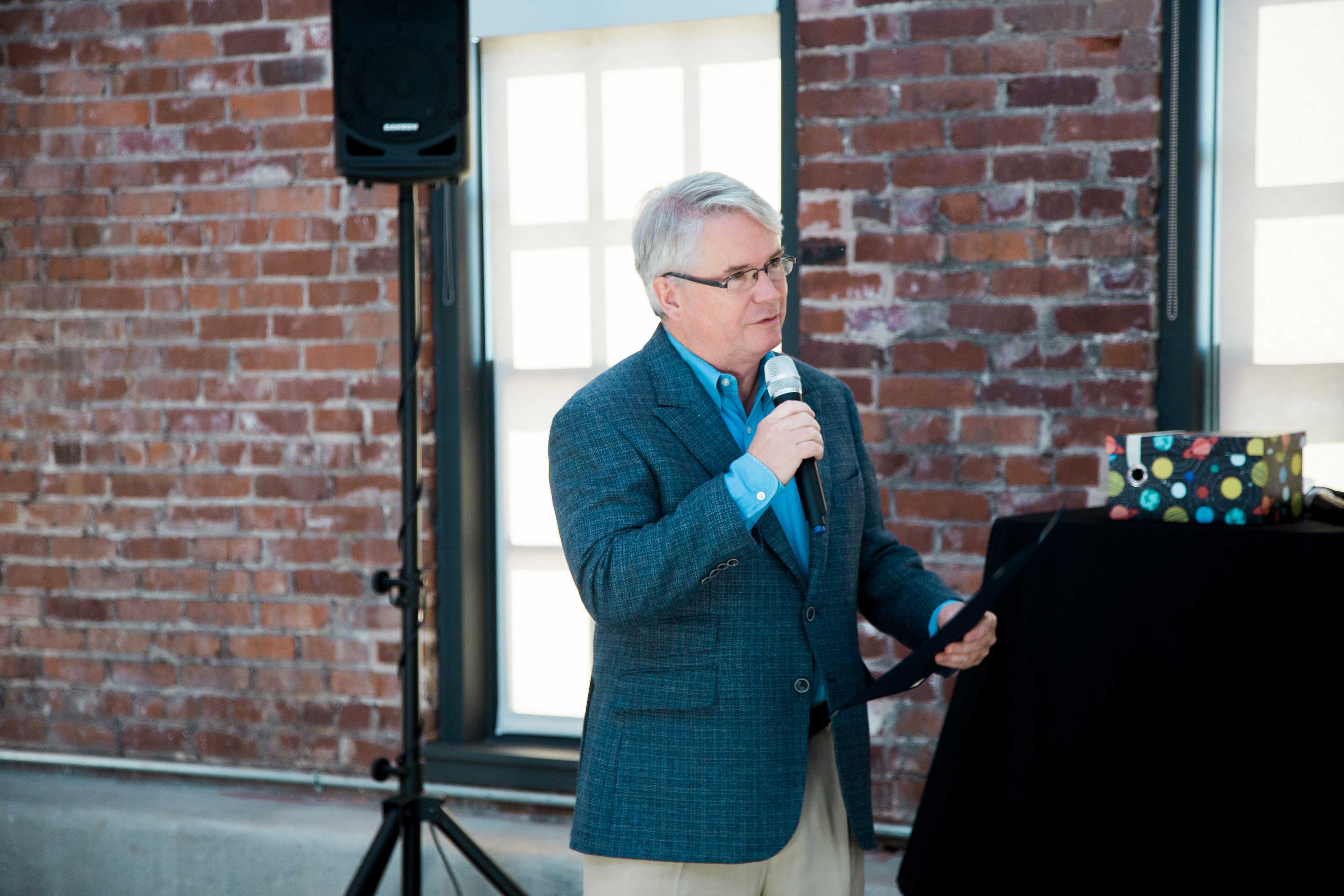Page last updated on October 10, 2019 at 9:21 am
On behalf of the City of Bloomington, I want to welcome everyone to this special occasion, our inaugural recognition of Ada Lovelace Day.nThis pioneer of computer and software programming born more than 200 years ago has been recognized in other communities around the world since 2009, so it’s high time and most appropriate that she gets her day in Bloomington. Although some of us are just getting acquainted with the name Ada Lovelace, we are blessed and strengthened by the local presence of such luminaries of innovation as Laurie Burns McRobbie, Jane Martin, Katy Börner, Teri Willey, and Christine McDonnell...just to name a few of those among us today. Or those no longer with us, but whose legacies endure--such as IU Professor Elinor Ostrom, just ten years ago this week becoming the first woman to win the Nobel Memorial Prize in Economic Sciences.
Our traditional stories of the Industrial Revolution, tend toward men and machines -- James Watt and the steam engine, Henry Bessemer and the steel converter.nEven though Ada Lovelace wrote the first algorithm to be processed by a machine -- thereby effectively overhauling mechanization -- her name has not been part of that pantheon of industrial innovators...until recently. Correcting history books is one goal of today’s recognition. How many other Ada Lovelaces are hidden in the story of innovation? We can think of that terrific recent movie Hidden Figures about NASA mathematicians Katherine Johnson, Dorothy Vaughan, and Mary Jackson, as just one other example of excavation of history for her story. It is critically important to reinsert the names of the traditionally underrepresented into the dominant narrative. A fuller, richer, and more inclusive story of the past will take female change-agents like Ada Lovelace out of the exceptional space to which they have been relegated, and normalize the place of women at the center of our society, be it as innovators, artists, entrepreneurs or any other pursuit.
We’re not there yet. Almost two centuries after her pioneering work, Ada Lovelace is still not a household name, and the women who carry her work in technology forward often are similarly overlooked. Even in an industry that touts the ideals of connection, democracy, and moral righteousness, we have heard a lot about Silicon Valley’s prevailing “bro culture.” A culture with tangible inequities today--according to one study, analyzing “more than 6,000 companies, 180,000 employees and 15,000 founders...overall, men own 91 percent of employee and founder equity in Silicon Valley, leaving women a scant 9 percent.” And even then, we’ve learned “the average female founder owns just 39 cents in equity for every $1 a male founder owns.”
The proposition we’re affirming in Bloomington, today, is that stories of the mothers of invention are fundamental and overdue and important, with the panel we’ve just enjoyed, convening some of our community’s most powerful women in tech -- with Cardinal Stage Company’s production of Ada and the Engine in the spring (Kate Galvin will be sharing more with you about that in a moment) -- and in one way with the following proclamation.

Proclamation:
